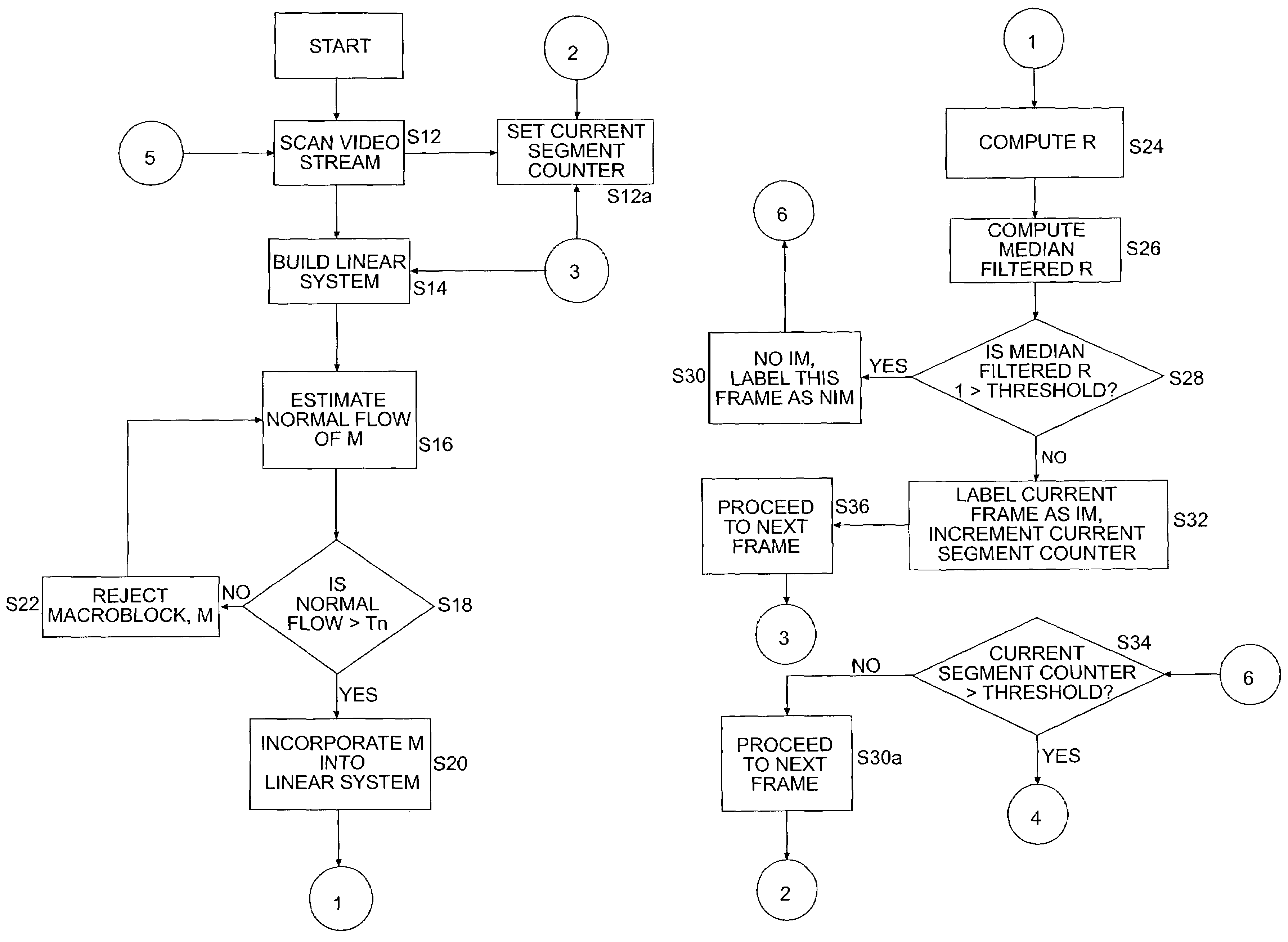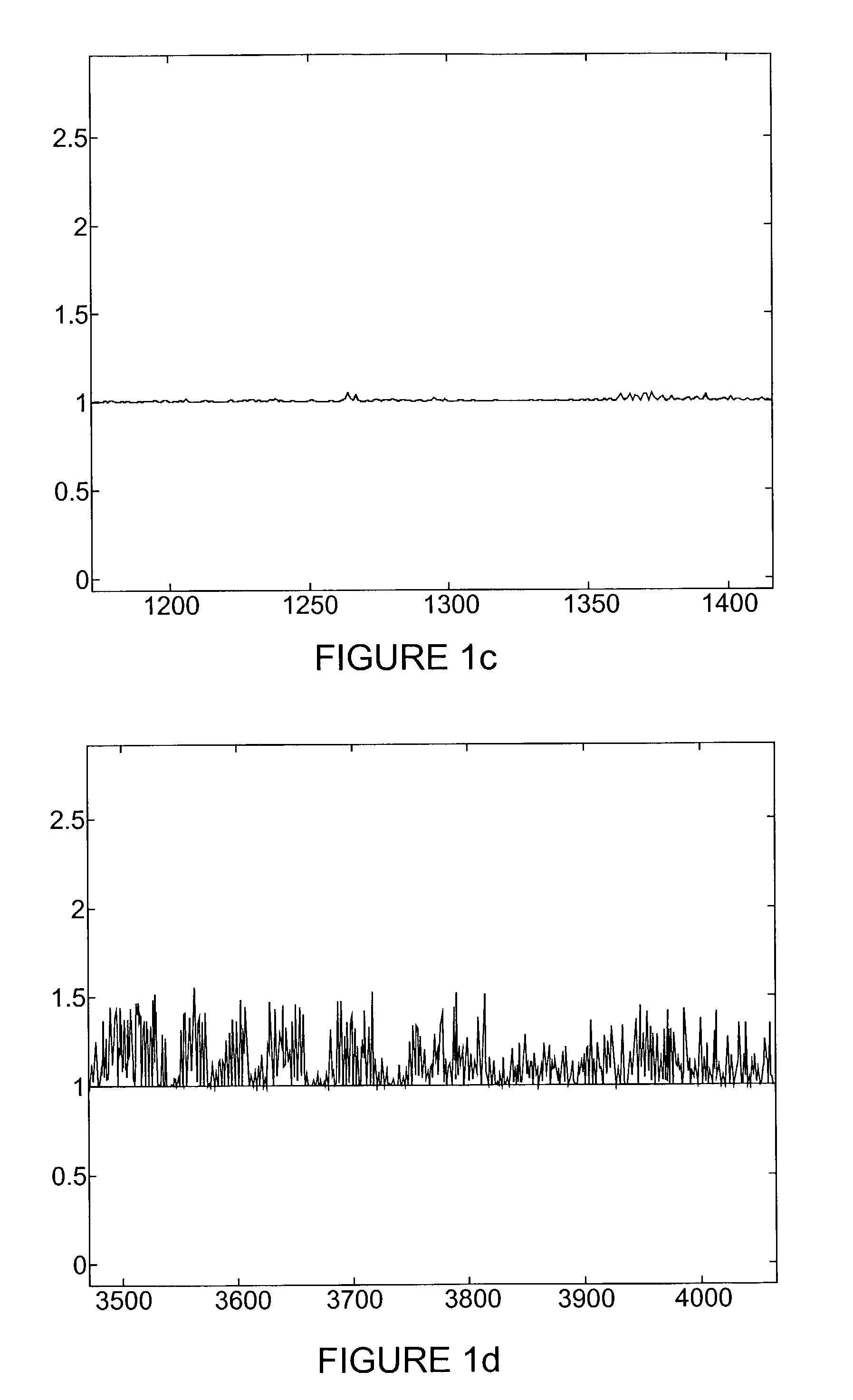Linear system based, qualitative independent motion detection from compressed MPEG surveillance video
a surveillance video and linear system technology, applied in the field of linear system based, qualitative independent motion detection from compressed mpeg surveillance video, can solve the problems of trivial automatic detection of motion from the video, large data volume, and inability to have a still camera, and achieve the effect of low complexity of invention methods
- Summary
- Abstract
- Description
- Claims
- Application Information
AI Technical Summary
Benefits of technology
Problems solved by technology
Method used
Image
Examples
Embodiment Construction
[0046]The present invention provides a qualitative linear system consistency analysis, using a 3D to 2D affine model to approximate the video camera imaging system. The linear system is a set of linear equations, expressions of variables in the first degree, i.e., including unknowns only with an exponent of one, later here shown as matrices, and operated upon with the ordinary techniques of linear algebra. An affine model is a transformation that requires lines parallel before transformation remain parallel after transformation. For typical surveillance video streams consisting of successive frames, this affine model is sufficient to model the mapping from 3D scene to 2D images. This model works well even for many non-surveillance video streams such as movies.
[0047]Given a 3D point P and its corresponding 2D point p, a 3D to 2D affine transform is a linear transform, and is defined as:
p=AP+t Eq. (1)
where A is a 2 by 3 matrix with six independent parameters, and t is a 2D vector wit...
PUM
 Login to View More
Login to View More Abstract
Description
Claims
Application Information
 Login to View More
Login to View More - R&D
- Intellectual Property
- Life Sciences
- Materials
- Tech Scout
- Unparalleled Data Quality
- Higher Quality Content
- 60% Fewer Hallucinations
Browse by: Latest US Patents, China's latest patents, Technical Efficacy Thesaurus, Application Domain, Technology Topic, Popular Technical Reports.
© 2025 PatSnap. All rights reserved.Legal|Privacy policy|Modern Slavery Act Transparency Statement|Sitemap|About US| Contact US: help@patsnap.com



